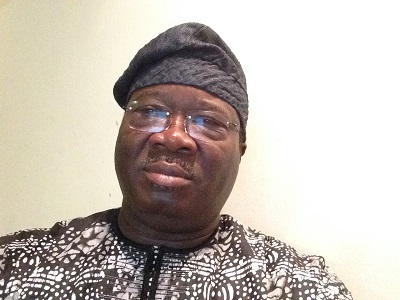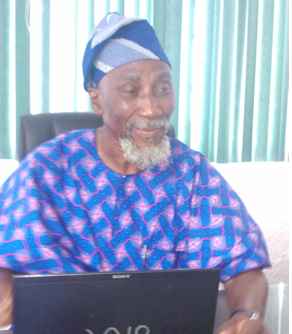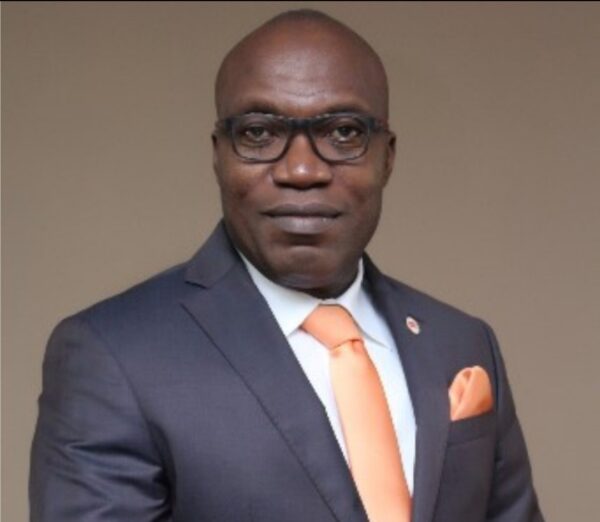Nigeria Has Nothing To Offer At IMO Council – Ilori

By Kenneth Jukpor
Engr. Emmanuel Ilori is the National Publicity Secretary of the Nigerian Indigenous Ship Owners Association (NISA). In this interview with MMS Plus, Ilori appraises Nigeria’s chances of getting into the International Maritime Organization (IMO) Council. He also bares his mind on the state of the nation’s maritime industry as well as the entire transport sector.
Excerpts:
Nigeria has begun to bid for a position in the Category C at the International Maritime (IMO) Council but many don’t know the benefits. What are Nigeria’s chances of getting into IMO Council member?
The IMO Council has three categories; Category ‘A’ for nations with the largest interest in maritime and shipping services, Category ‘B’ is for those with the largest interest in seaborne trade and Category ‘C’ which Nigeria is aiming for has a technical criteria with special interest in maritime transport. We need to understand that significant technical interest and business interest form part of the criteria for election into the Category ‘C’ of the IMO Council. The election into Category ‘C’ is also to ensure that there is a global balance among the member states that make up the IMO. Hence, the distribution is about regions. In order to get into Category ‘C’, Nigeria has to be seen as a good representative of the African region.
Let’s look at the African nations presently at the IMO Category ‘C’, they are; Egypt, which has the Suez canal, an artificial sea-level waterway in Egypt, connecting the Mediterranean Sea to the Red Sea through the Isthmus of Suez, Egypt want to protect their interest. Another nation is Kenya, representing East Africa and Kenya has done a lot of work in making sure that they promote trade, shipping traffic and shipping generally for East Africa, especially the landlocked nations, so Kenya has a very significant interest because of its proximity to China and Asia. The other nation is South Africa, which is already a technologically advanced ship building country and they can claim that they have significant interest in shipping globally. Liberia is another nation that is in West Africa and they have a very large tonnage with regards to shipping traffic so the four regions of Africa are already represented at the IMO Council in the Category ‘C’.
However, by virtue of Nigeria’s political clout, the nation may be able to get into the Category C, but what can we claim to be our justification apart from our potentials that should warrant a position at the IMO Council? The potential may be there but it is unrealized and we need to get our acts right as a nation with regards to shipping before we aim for a position at the IMO Council. In terms of development in shipping and the maritime industry, we haven’t done enough to be able to push the other African nations off.
How can Nigeria get into the Category C at the IMO council, It has been said that this involves some degree of politicking?
It takes a high level of diplomacy to get other nations to vote for you, but you must have something appealing to sell to those nations in order to get their votes. Recently, Nigeria hosted the Association African Maritime Administrators (AAMA) and the Director General of the Nigerian Maritime Administration and safety Agency (NIMASSA), Dr. Dakuku Peterside emerged as the president of AAMA, This is a good development but Nigeria shouldn’t only rely on the votes from African countries for the IMO Council slot because we are competing with other African nations.
Nigeria needs to take the lead of trans-national maritime issues across Africa as that would ensure that we are playing the role of a leader. We have the trade but how much do we control in the trade. How many of Nigeria ships are used for international trade of the nation’s cargo? How many ships have been built in Nigeria? What is the state of the nation’s maritime infrastructure? How much is Nigeria contributing to the technical development of resolutions that affects shipping operations in Africa? These are areas that the nation needs to improve in order to get the endorsement of other countries at the IMO.
How does a place on the IMO Council enhance the development of shipping and maritime in Nigeria?
The council is the apex body in terms of running the IMO, making regulations and policies that govern maritime globally. There are several advantages that a place in the Council affords the nation. It raises the influence of the nation gives an opportunity to make input in the development of polices that would affect maritime globally. It is also a privilege to be part of the group that makes key decisions before it gets to the larger assembly and the rest of the world. So, it is a desirable position to be, but what can Nigeria offer at the level. Nations goes to the council to offer technical input on maritime issues in terms of infrastructural developments, policy formulation, innovations, etc. Nations also go to the council with technical experts to ensure that their contributions gain recognition and accolades at the IMO. Nigeria shouldn’t go into the council to become a bench-warmer.
The development of the national carrier seems to have stalled as a result of inability of Nigerian ship owners to generate 40% of the sum. What is the headway?
You can’t blame the ship owners for the paucity of funds. You need to look at the antecedents of the ship owners. What happened to those who invested in the past? Over $10billion had been invested by Nigerian ship owners; however most of those loans ended up as bad debt. There are several reasons that led to this bad debt such as the high interest charged by commercial banks, the high cost of doing business in the nation and the high rate of inflation, this made the system fail. Should we blame the ship owners or the Nigerian economic system?
The system must be in such a way that is favorable to the ship owners. Other nations look towards protecting the interest of their ship owners with low interest loans. Look at the Cabotage Vessel Finance Fund (CVFF), it was a fantastic initiative but disbursement as it stands wouldn’t lead to the development of the maritime sector. The plan is to give the monies to some ship owners to buy ships. How about other aspects of shipping such as ship repairs, maintenance and other investors in the maritime sector that would play significant roles for shipping business to thrive?
The idea should be to fund the entire maritime sector and that be achieved via a Maritime Development Bank as the practice is in the other nations. This is what is needed for rapid growth of the nation’s maritime industry. We can also use the CVFF to fund the Maritime Development Bank. The bank should be able to give medium and long term loans other than the short term loans that commercial banks are used to. These loans should also be on low interest and as the industry grows, people repay the loans, the bank and CVFF also grows. This would create more jobs and stabilize the nation’s economy. At this point, we can proudly say to the world that we have something to offer with regards to the maritime industry at the global terrain.
Although piracy on Nigerian territorial waters has reduced in recent times, the nation is still placed on the war risk zone by global insurance companies which mean extra cost for vessels and sea farers coming into Nigeria; how can Nigeria correct this trend?
It would be very difficult to correct this because the global perception is that Nigerian waters are unsafe. Despite the concerted efforts of the Nigeria Navy and NIMASA, it is sad that Nigeria continues to pay more for import and lose revenue as a result of this wrong notion about the country.
However, the truth is that foreigners care less about the safety of our waters. As long as we do not have ships they would continue to exploit the nation in order to maximize their profit. The only solution is to get vessels and utilize these vessels for most of our imports; otherwise, the foreign nations would continue to collect these arbitrary charges. These charges add to the cost of goods in the country which leads to inflation.
There are also another concern about the dearth of qualified Nigerian seafarers as a result of the lack of vessels for them to get sea time experience. What does the future hold for Nigeria seafarers?
Nigeria needs vessels and sea time experience would be one of the added advantages of a Nigerian fleet. However, Nigeria ship owners have been seen to do their best with regards training and providing seatime experience for seafarers. They have trained over the 150 cadets at the last six years, including some of the cadets sent abroad by NIMASA.
The issue of manpower development has several dimensions but one of the questions we need to ask is -should we continue to churn out thousands of cadets when we have no training facilities? We need to match the availability of vessels to the number of cadets we are producing. We are putting the cart before the horse by producing cadets without any plans or provision for their sea time. It is a great disservice to the cadets and a great disservice to the nation.
The first quarter of 2017 has ended, how would you appraise Nigeria’s transport sector and what should the nation be keen on achieving before the end of the year?
Nigeria’s transport industry is in a situation where everything is said to be ‘work-in-progress’. Until we start to see real work done, we can’t point-out our developments in transportation. One of the greatest challenges facing transportation in Nigeria is the amount of goods that are conveyed through the roads. Lagos ports are congested while the Eastern ports are under-utilized. We have put a lot of cargo on the road and this eventually destroys the roads. We are talking about developing the railways, but we already have a stretch of water ways especially between Lagos and the Eastern ports. A small vessel can take about 200 containers off the roads. The roads would become safer and the huge investment on the road would last longer. Nigeria can realize this super highway via the seas in a very short time. There is no harm developing the railways but how soon would that achieved.







